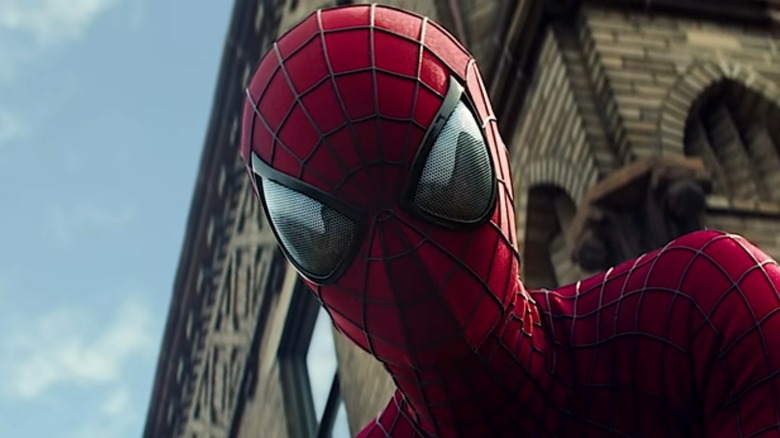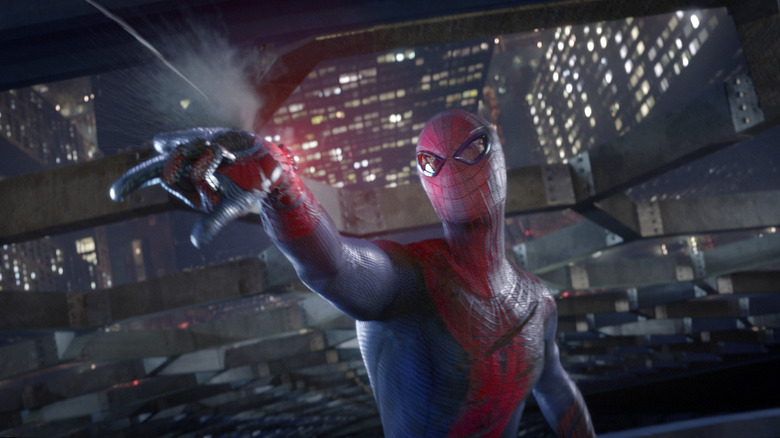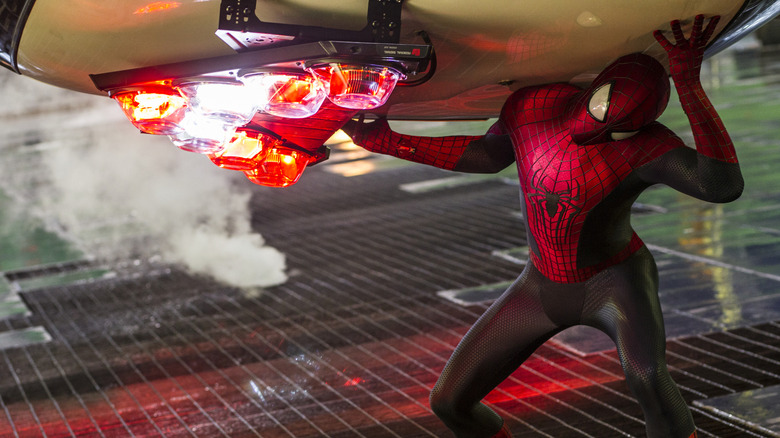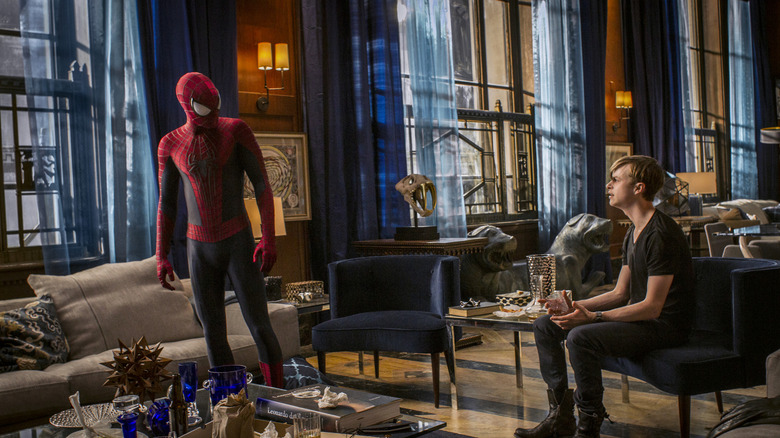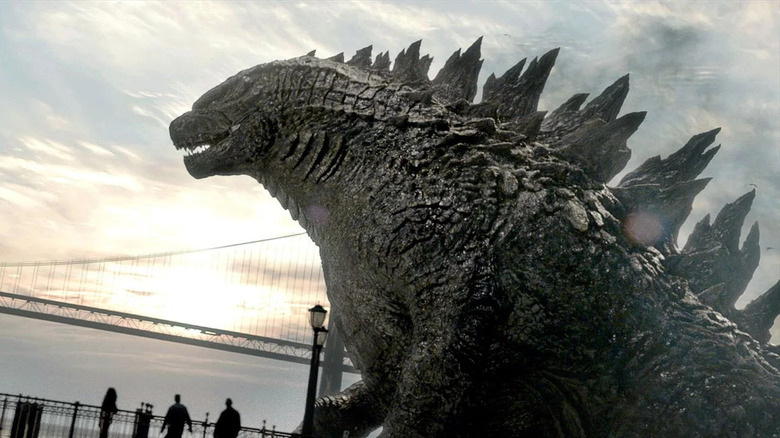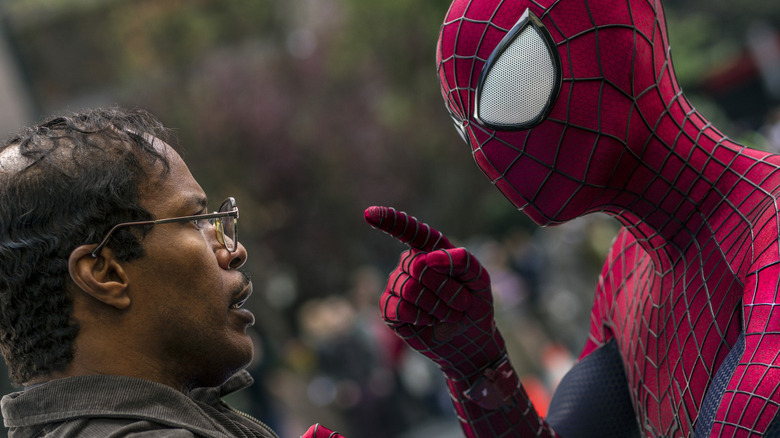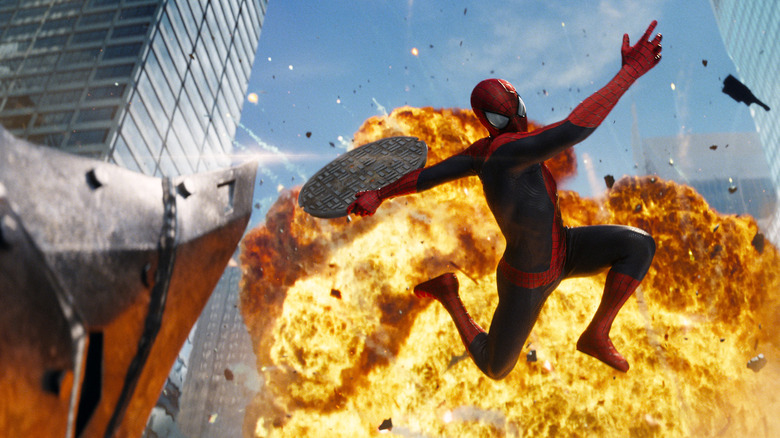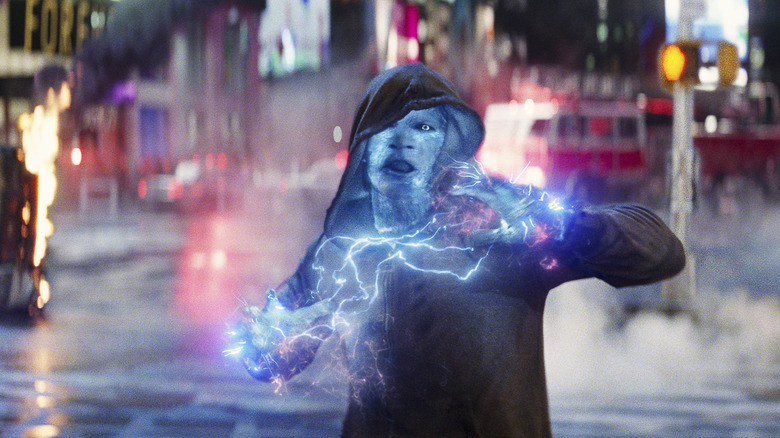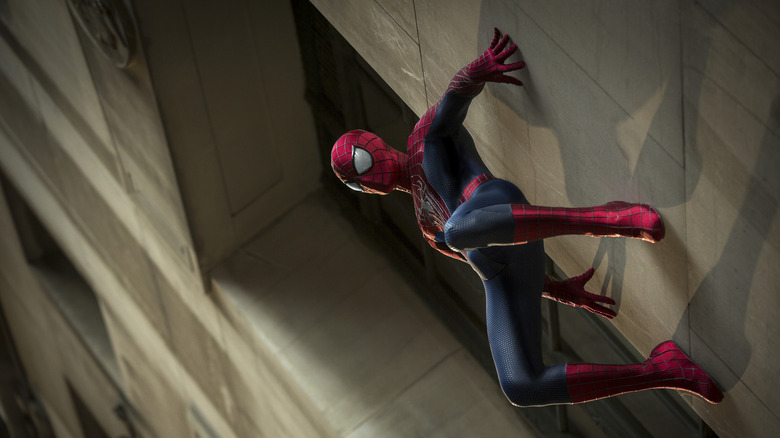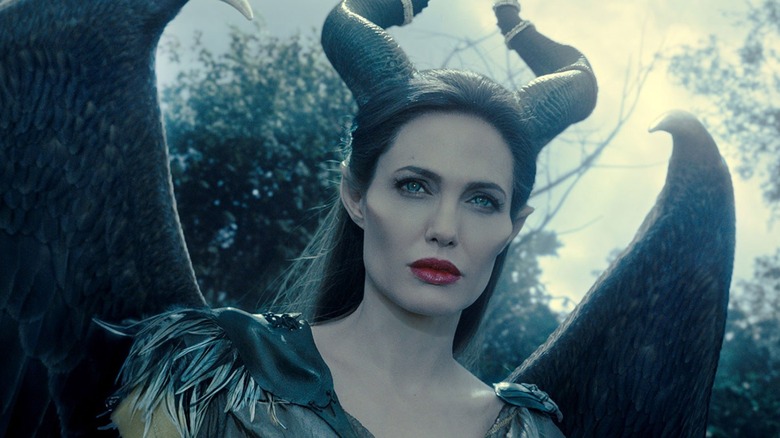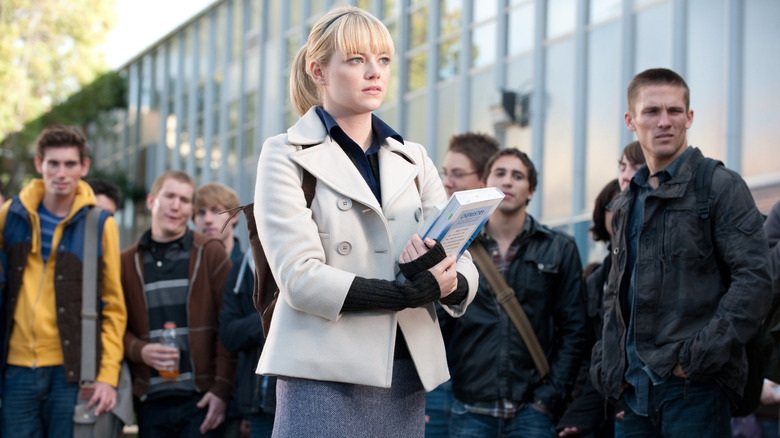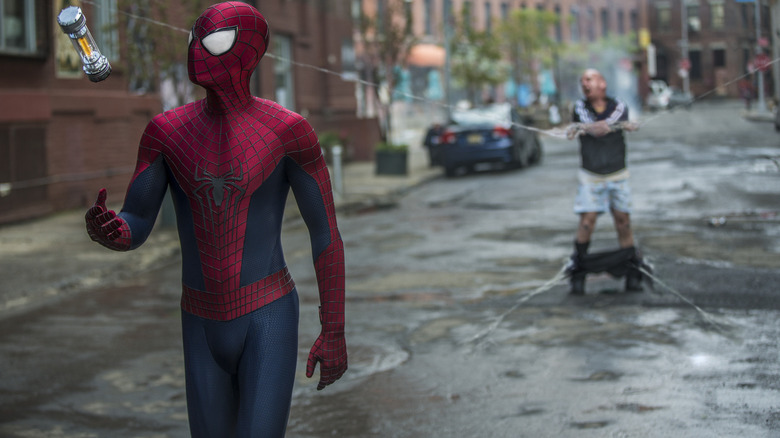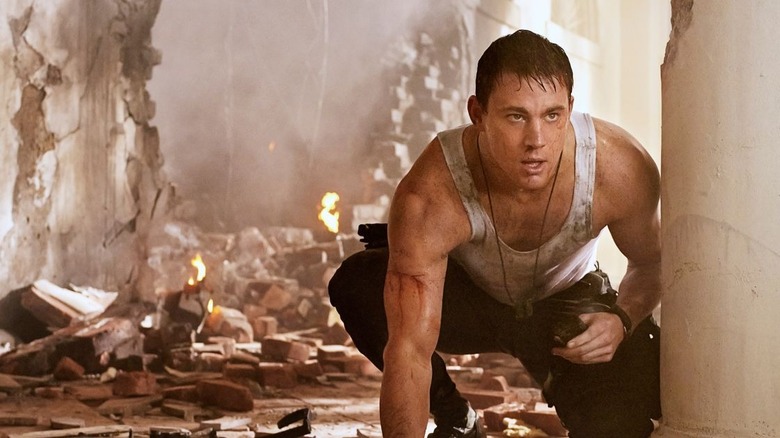The Real Reason The Amazing Spider-Man Flopped So Hard
The Tobey Maguire iteration of Spider-Man changed comic book movies forever thanks to the record-breaking box office performances of these individual titles and the way they grabbed the public. Meanwhile, in the 2010s, the Tom Holland incarnation of the character took the web-crawler back to high school to explore new sides of this superhero, all the while tying him deeper into the expansive lore of the Marvel Cinematic Universe. Andrew Garfield's version of Spidey across the two "Amazing Spider-Man" movies, meanwhile, was riddled with far more problems, culminating in the box office and critical failure of "The Amazing Spider-Man 2." While Garfield's character got some redemption with an acclaimed return performance in "Spider-Man: No Way Home," the solo outings for this take on Spidey were certainly more flawed affairs.
For a multitude of reasons, ranging from problems with massive pre-release box office expectations to competition from other summer 2014 blockbusters to just problems ingrained into the reputation of its predecessor, "The Amazing Spider-Man 2" had an uphill battle. Across all these factors, it becomes clearer and clearer why the "Amazing Spider-Man" franchise didn't last long in the history of Spider-Man on the big screen.
The hint for problems in The Amazing Spider-Man's box office
It's strange to remember that, while the "Amazing Spider-Man" era of this character sputtered out, the 2012 film "The Amazing Spider-Man" was a solid hit. Long before Tom Holland graduated high school, Andrew Garfield's inaugural foray as Spidey was an agreeable box office performer. After scoring the second biggest 4th of July opening day ever, "The Amazing Spider-Man" ended up exceeding $260 million in North America and $757 million worldwide. That was enough to make it one of the biggest movies of 2012 and substantially bigger than usual for a reboot.
However, there was a small downside, one that would eventually serve as a harbinger for the problems with the "Amazing Spider-Man" franchise. Specifically, this was the lowest-grossing entry in the "Spider-Man" franchise yet worldwide. Despite years of inflation, 3D ticket prices, and the expanding presence of international markets like China, "The Amazing Spider-Man" still made less than all three of the "Spider-Man" movies headlines by Tobey Maguire. This wouldn't have been an especially fatal issue, except that "Amazing Spider-Man" wasn't super beloved by the general public. While far from hated, it also didn't generate the kind of euphoric response that would suggest people were hankering for a sequel. These two issues would end up coming home to roost on the box office run of "The Amazing Spider-Man 2" and, in the process, sink the "Amazing Spider-Man" franchise.
The box office shortcomings in The Amazing Spider-Man 2
Before diving into the specifics of why "The Amazing Spider-Man 2" came up short financially, it's important to understand the specifics of its box office performance. Released to theaters in May 2014, just shy of two years after "The Amazing Spider-Man," this sequel opened to $91.6 million in North America. It was a hefty sum, but it was down 40% from the opening weekend of "Spider-Man 3," which also premiered over the first weekend of May seven years prior. The problems in its domestic run came with its sizable weekend to weekend drops. Middling word of mouth led to the film stalling out at $202.8 million domestically. That was down 23% from the North American haul of "The Amazing Spider-Man."
Worse, this made "The Amazing Spider-Man 2" the lowest-grossing "Spider-Man" title in this territory by a considerable margin. It also secured this title on a worldwide box office basis thanks to a $708.9 million global haul. While not a puny sum, it wasn't great for a movie that cost $255 million to produce. Not even tripling that hefty price tag was far from ideal for everyone at Sony/Columbia. Plus, it came up short against other superhero movies from 2014 like "Guardians of the Galaxy." Though it didn't quite crash and burn at the box office, "The Amazing Spider-Man 2" was still a disappointment and an indication that this iteration of the web-crawler had run its course with moviegoers.
The $1 billion expectations for The Amazing Spider-Man 2
Part of the problem with the box office total of "Amazing Spider-Man 2" was the oversized expectations that Sony/Columbia had set for the project. A month before its release, Variety reported that executives at the company had set $1 billion worldwide as the target that "The Amazing Spider-Man 2" needed to hit to be considered a success. This was attributed to multiple factors, including Sony/Columbia not having many franchises that could pick up the financial slack and the then-recent $1+ billion success of Marvel Studios projects like "The Avengers" and "Iron Man 3." It was a new superhero movie landscape, and "The Amazing Spider-Man 2" had to compete in it.
Unfortunately, there were always going to be major obstacles in the face of this goal. Chief among them was that no other "Spider-Man" movie up to that point had cracked the $1 billion thresholds. In the history of Sony/Columbia as a company, meanwhile, only "Skyfall" had managed to exceed that same global box office mark. In other words, there wasn't a lot of precedent for a Sony/Columbia blockbuster, let alone one starring Spider-Man, to gross over $1 billion worldwide. Still, this was the target for success that the studio set and it was one that "The Amazing Spider-Man 2" would miss by nearly 30%. The disparity between pre-release expectations and final worldwide gross solidified "The Amazing Spider-Man 2" as a box office disappointment.
Competition from May 2014 blockbusters
One thing that kept "The Amazing Spider-Man 2" from being as big as it could be was competition. There were a lot of major movies aiming to be big blockbuster crowdpleasers surrounding "The Amazing Spider-Man 2" in early May. The Gareth Edwards "Godzilla" would drop two weeks after this "Spider-Man" installment and "X-Men: Days of Future Past" and "Maleficent" would each debut in the two weeks after that. All three of these titles cracked $68+ million on their respective domestic opening weekends, with "Godzilla" and "X-Men" each managing to exceed $90 million in their bows. With all these movies around, there was no room for "The Amazing Spider-Man 2" to become the must-see event of the month.
By comparison, "The Avengers," which opened in the same first weekend of May slot two years earlier, had to face off against no other movies that opened over $66 million in its month of release. The likes of "Battleship" and "Dark Shadows" crashed and burned financially while even "Men in Black 3" ended up making less than its two predecessors. This gave "The Avengers" a lot more wiggle room to ride its positive word of mouth to a massive global box office haul. "The Amazing Spider-Man 2" had lots of other problems to face in its financial run. However, a jam-packed slate of blockbusters in May 2014 did it no favors in its pursuit of a gigantic box office haul.
The mixed reception to The Amazing Spider-Man 2
The "Spider-Man" franchise had experienced its fair share of criticism before "The Amazing Spider-Man 2" rolled around, most notably with the 2007 installment "Spider-Man 3." But the critical reception to "The Amazing Spider-Man 2" was much harsher than any other entry in the series. Scoring to date the worst reviews for any 21st-century movie headlined by Spider-Man, "The Amazing Spider-Man 2" was widely lambasted for an overstuffed narrative, not particularly impactful villains, and strange choices with the romantic subplot between Peter Parker and Gwen Stacy. This was a long way from the universal raves that greeted "Spider-Man 2" just a decade earlier.
Summer blockbusters don't have to be critical darlings to be moneymakers. Just ask fellow summer 2014 blockbuster "Transformers: Age of Extinction," which cracked $1 billion worldwide despite garnering way worse reviews than "The Amazing Spider-Man 2." The problem here, though, was that audiences shared the dissatisfaction of critics, with "The Amazing Spider-Man 2" snagging a B+ CinemaScore grade from general moviegoers. That wasn't just lower than the A- rating audiences gave the first "Amazing Spider-Man," it was down from most other superhero movies. With both critics and audiences just not all that jazzed about "The Amazing Spider-Man 2," the film's box office suffered and, consequently, so did the future of this iteration of Spider-Man.
The emphasis on future movie set-up in the marketing
Watching the various marketing materials for "The Amazing Spider-Man 2," it was apparent that Sony/Columbia wanted even casual viewers to get excited for the future well beyond just this one summer blockbuster. The first trailer for "The Amazing Spider-Man 2" was filled with Easter eggs and hints of forthcoming baddies, like a hallway where the gear for characters like Doctor Octopus and The Vulture were stored. Even the central tagline for the entire promotional campaign, "His greatest battle begins," was suggestive of "The Amazing Spider-Man 2" being just the beginning of a much broader narrative. Sony/Columbia wanted moviegoers to be on the hook for the long haul.
Unfortunately, this approach just diluted the importance of "The Amazing Spider-Man 2." While teasing out the forthcoming "battles" and Sinister Six foes, the various trailers and TV spots for "The Amazing Spider-Man 2" neglected to sell the tonal and action elements unique to this specific feature. In other words, this marketing campaign was so focused on the future that it lost track of the present. Compare this to the advertising for that same summer's "Guardians of the Galaxy," which was all about selling distinctive music, characters, and action beats, rather than exclusively relying on the idea of Rocket Raccoon possibly running into Tony Stark one day. In putting the care before the horse in its cinematic universe planning, Sony/Columbia sealed the box office doom of "The Amazing Spider-Man 2."
Too many familiar elements in The Amazing Spider-Man 2 advertising
The marketing for "The Amazing Spider-Man 2" was predicated on the idea that "a sinister new era" was about to begin, one that would stretch well beyond this single sequel. Unfortunately, those same trailers and commercials tended to rely on imagery that was all too familiar for die-hard "Spider-Man" fans. Most notably, the trailers tended to emphasize the presence of a new version of Green Goblin swinging around on a goblin glider and fighting the web-crawler. Another key moment in the advertising involved Gwen Stacy falling to her presumed doom, far from the first time a Spider-Man love interest had been placed in such a precarious situation.
The marketing wasn't devoid of heretofore unseen characters in the "Spider-Man" movies, as seen by the prominent placing of The Rhino and Electro. But having trailers lean on well-trodden territory (like a contentious dynamic between Peter and Harry Osborne) just reminded people of the older films in the franchise. Worse, elements like a fight scene between the Goblin and Spider-Man were so prominent that they overwhelmed any original details that could've given moviegoers a reason to rush out to see "The Amazing Spider-Man 2." The result of these derivative efforts was a box office haul that indicated many had opted to stay home and rewatch the "Spider-Man" movies instead.
So many sequels, so little interest
"The Amazing Spider-Man 2" didn't just have a $1 billion box office benchmark to live up to. It was also supposed to be the start of several sequels and spin-offs set within the universe this version of Spidey inhabited. These included two separate "Amazing Spider-Man" sequels, each set for release in the summers of 2016 and 2018. Then there were the spin-off features, which included a Drew Goddard "Sinister Six" movie and a female-led spin-off feature set within the "Amazing Spider-Man" universe penned by "Westworld" creator Lisa Joy. Sony/Columbia had every ounce of confidence that "The Amazing Spider-Man 2" would prove successful enough to yield follow-ups for years to come.
Of course, this never happened. "The Amazing Spider-Man 2" became a box office underperformer and started a domino effect for the various spin-offs Sony/Columbia had planned. Initially, it just seemed like a "Sinister Six" film would be given a priority at the studio, with the prospective feature receiving a November 2016 release date while the third "Amazing Spider-Man" solo movie was delayed to 2018. However, all of these spin-offs would eventually get scrapped, with Sony/Columbia restarting its attempt at a universe of characters based in Marvel Comics lore with "Spider-Man: Homecoming" and "Venom." The bad box office of "The Amazing Spider-Man 2" had the worst kind of ripple effects on countless Sony/Columbia blockbusters that never got to see the light of day.
The Amazing Spider-Man 2 got overshadowed by other summer 2014 blockbusters
The box office returns for "The Amazing Spider-Man 2" would not have been great in any context. But in the summer of 2014, there were plenty of hits around to emphasize how much this film had come up short financially. For starters, there were other May 2014 movies like "Maleficent" that handily outgrossed "The Amazing Spider-Man 2." This month also saw the release of the R-rated comedy "Neighbors," which amassed a $151 million domestic haul that was way closer to the total gross of "The Amazing Spider-Man 2" in this same territory than anyone could've predicted.
Later on in the summer, "Dawn of the Planet of the Apes" had no problem outgrossing its predecessor to gross over $700 million worldwide. Despite "Rise of the Planet of the Apes" making nearly $300 million less globally than the first "Amazing Spider-Man," "Dawn" would prove handily victorious over "Amazing Spider-Man 2" in the summer 2014 worldwide box office. And then there was "Guardians of the Galaxy," a blockbuster adaptation of largely unknown comic book characters. Star-Lord and Groot weren't household names at the start of that summer, but they would be soon enough with a $770.8 million worldwide gross and the biggest domestic numbers of summer 2014.
There was lots of wealth to go around this summer, with many blockbusters excelling. Unfortunately, the plethora of successes only served to highlight how much "The Amazing Spider-Man 2" had come up short financially.
The controversy over Gwen Stacy's death
"The Amazing Spider-Man 2" brought the iconic comic book moment where Gwen Stacy perishes during a fight between Spider-Man and the Green Goblin to the silver screen. It's a seminal moment that forever changed this wall-crawler's life, and although it was referenced in a similar scene with Mary Jane in 2002's "Spider-Man," this was the first time this scene was depicted in a feature film.
A big swing like that was bound to be divisive, though the execution of this moment was responsible for much of the dismissive response to "The Amazing Spider-Man 2." Rather than taking a cue from "The Empire Strikes Back" and letting a momentous downbeat blockbuster moment go unresolved, thus allowing more time for its impact to be felt, "The Amazing Spider-Man 2" opted to barrel through this development. Peter Parker mourns and then gets over Stacy's death in the span of a montage. It's too quick to leave the kind of impact that the comic book incarnation of this same moment had while failing to work divorced from the source material as a standalone development in Spider-Man's life. This critical failing left a sour taste in the mouths of moviegoers leaving "The Amazing Spider-Man 2" and contributed to the franchise's demise.
Deviating too much from Spider-Man as a character
It's always necessary for iconic characters to evolve over the years, lest they become stale. Over the decades, there have been many great instances of Spider-Man getting tweaked to function as especially relevant to a contemporary audience. "The Amazing Spider-Man" movies, however, were not one such instance of this trend.
This version of Peter Parker often acted totally at odds with the plucky nerdy outcast of the comics and other media adaptations, to the point that it undermined keys part of the Spider-Man mythos. These issues only got exacerbated in "The Amazing Spider-Man 2," which featured moments like Parker smooching Gwen Stacy at his high school graduation to thunderous applause.
The deviations from Spider-Man's characters could've been forgiven if they were especially compelling character traits. Unfortunately, this version of Peter Parker just felt like he'd been put through the focus group wringer rather than altered to suit a specific bold creative vision. These variations on Spider-Man's personality drew widespread controversy and further compounded the generally negative reception to the "Amazing Spider-Man" franchise. Having to grapple with the negative perception of this iteration of the character, not to mention dwindling box office returns, it's no surprise Sony/Columbia would opt to reboot the superhero once more shortly after "The Amazing Spider-Man 2" premiered.
Sony's difficulties with launching blockbusters in the early 2010s
"The Amazing Spider-Man 2" was an extremely notable box office misfire for Sony/Columbia, but it was far from the only title from this studio in the early 2010s to flop. Part of this feature's financial shortcomings could be attributed to how Sony/Columbia just could not sell big tentpoles in this era of its history. Big-budget hits were few and far between even for movies that didn't include Spider-Man
For instance, the $100+ million budgeted "The Tourist" ended up flaming out at the box office despite starring Johnny Depp and Angelina Jolie. Meanwhile, in 2013, Sony/Columbia suffered a pair of sizable costly flops in the form of "After Earth" and "White House Down." Both motion pictures cost north of $125 million to produce but ended up losing millions for the studio. Even "Men in Black 3," which did exceed $600 million worldwide, cost a massive $225 million to make and was the lowest-grossing entry in its franchise in North America.
The studio executive and marketing regime at Sony/Columbia in the early 2010s just had immense difficulty in figuring out how to sell costly tentpoles to the masses. This compounded issues here in "The Amazing Spider-Man 2" and ensured it would end up as another pricey blunder from the studio.
